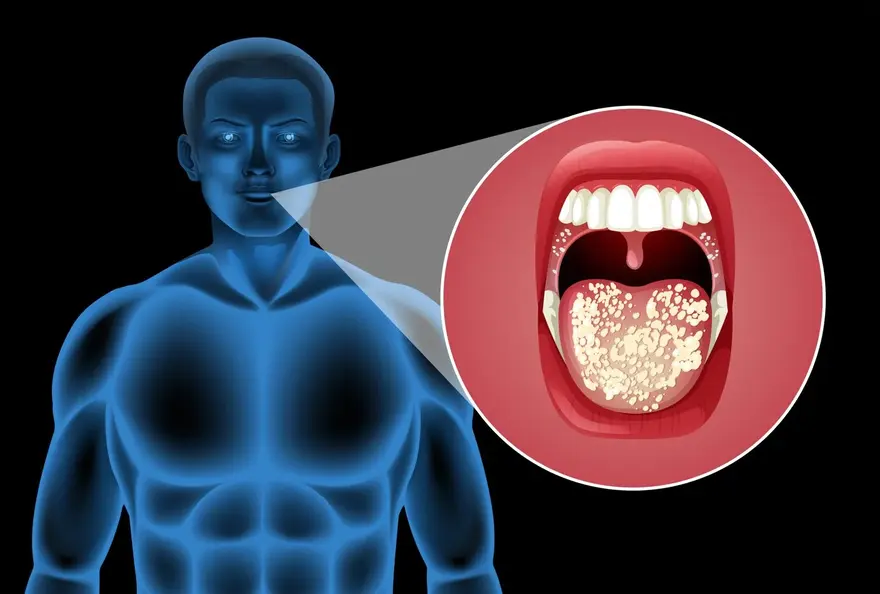Preventive Healthcare
Top 9 Diseases of the Digestive System
8708 Views
0

The digestive system is an essential part of our body responsible for the breakdown and absorption of nutrients from the food we eat. However, many diseases can affect this vital system, causing discomfort, pain, and even life-threatening conditions. From GERD to pancreatitis, knowing about these digestive disorders is crucial in maintaining good health and seeking timely medical attention when needed. In this blog post, we'll explore the top 9 digestive system diseases you should be aware of to keep your gut happy!
List of Top 9 Digestive System Diseases
The top nine digestive system diseases such as:
- Gastroesophageal Reflux Disease
- Inflammatory Bowel Disease
- Irritable Bowel Syndrome
- Peptic Ulcers
- Gallstones
- Celiac Disease
- Gastroenteritis
- Colorectal Cancer
- Pancreatitis
Gastroesophageal Reflux Disease
Gastroesophageal Reflux Disease (GERD) is a digestive disorder that affects the lower oesophagal sphincter, causing food and stomach acid to flow back into the oesophagus. This can result in heartburn, chest pain, difficulty swallowing, and other uncomfortable symptoms.
The most common symptom of GERD is a burning sensation in the chest or throat, also known as heartburn. Other symptoms may include regurgitation of food or sour liquid, coughing, wheezing, and hoarseness.
Inflammatory Bowel Disease
Inflammatory Bowel Disease (IBD) is a chronic condition that causes inflammation in the digestive tract. The two types of IBD are Crohn's disease and ulcerative colitis, each with its own distinct symptoms and risk factors.
Symptoms of IBD can vary from person to person but may include abdominal pain, diarrhoea, rectal bleeding, weight loss, fatigue, and fever. These symptoms can be severe and impact a person's quality of life.
Risk factors for developing IBD include genetics, environmental factors such as diet and smoking habits, and an imbalance in the immune system.
Irritable Bowel Syndrome
Irritable Bowel Syndrome (IBS) is a digestive disorder that affects the large intestine. It is characterized by symptoms such as abdominal pain, bloating, cramping, gas, diarrhoea or constipation.
The exact cause of IBS isn't clear yet but it's believed to be due to a combination of factors including genetics and environment. Certain foods like dairy products or high-fat foods can trigger symptoms in some individuals. Stress and anxiety are known risk factors for IBS as they can worsen symptoms. Women are also more likely than men to develop IBS.
Peptic Ulcers
PancreatitisPeptic ulcers are open sores that develop on the lining of the stomach or small intestine. These painful ulcers can cause discomfort, nausea, and other gastrointestinal symptoms. Common risk factors for peptic ulcers include infection with Helicobacter pylori (H. pylori) bacteria, regular use of nonsteroidal anti-inflammatory drugs (NSAIDs), smoking, alcohol consumption, and stress.
Symptoms of peptic ulcers may vary depending on their location and severity. However, common signs of peptic ulcer disease include abdominal pain or burning sensation in the stomach area that can radiate to the back or chest; bloating; belching; nausea/vomiting especially after eating fatty foods; loss of appetite; weight loss.
Gallstones
Gallstones are small, hardened deposits of digestive fluid that can form in the gallbladder. They can vary in size and shape from a grain of sand to a golf ball. Gallstones often go unnoticed until they cause symptoms, such as abdominal pain or discomfort.
One common symptom of gallstones is pain in the upper right abdomen, which may be accompanied by nausea or vomiting. The pain may also radiate to the back or shoulder blade on the same side. Risk factors for developing gallstones include being female, over 40, overweight or obese, having a family history of gallstones, and having certain medical conditions such as diabetes or liver disease.
Celiac Disease
Celiac Disease is a chronic digestive disorder that affects the small intestine. It occurs when gluten - a protein found in wheat, rye and barley - triggers an immune response that damages the small intestine's lining. The condition affects people differently, with some experiencing severe symptoms, while others may be asymptomatic.
Symptoms of celiac disease can include abdominal pain, bloating, diarrhoea or constipation, fatigue and weight loss. Children with celiac disease may also experience delayed growth and development. Celiac disease can lead to malnutrition and other serious health complications if left untreated.
The risk factors for developing celiac disease include having a family history of the condition or another autoimmune disorder such as type 1 diabetes or rheumatoid arthritis. Women are also more likely to develop celiac disease than men.
Gastroenteritis
Gastroenteritis is a medical term used to describe inflammation and irritation of the gastrointestinal tract. It is commonly known as "stomach flu" or "food poisoning". This condition can be caused by various factors such as viral, bacterial, or parasitic infections.
One of the most common culprits of gastroenteritis is contaminated food and water sources. Consuming unhygienic food or drinking polluted water can lead to an infection in your digestive system that causes inflammation and irritation.
Another cause of gastroenteritis is poor hygiene habits. When people don't wash their hands properly before preparing food or after using the bathroom, they become more susceptible to harmful bacteria that may trigger this condition.
Colorectal Cancer
Colorectal cancer is a type of cancer that affects the colon or rectum, which are parts of the digestive system. This disease can develop over a long period and may not show any symptoms in its early stages. However, as it progresses, various symptoms may indicate colorectal cancer.
Some common signs and symptoms include changes in bowel habits such as diarrhoea or constipation, blood in the stool or rectal bleeding, abdominal discomfort or pain, fatigue and weakness. These symptoms do not necessarily mean you have colorectal cancer but should be promptly checked by your doctor to ensure your health.
Pancreatitis
Pancreatitis is a condition that occurs when the pancreas, which is responsible for producing digestive enzymes and hormones like insulin, becomes inflamed. The inflammation can cause damage to the organ and surrounding tissues leading to severe pain or even life-threatening complications.
The symptoms include upper abdominal pain that radiates to the back or chest, nausea, vomiting, fever, rapid pulse rate and swelling in the abdomen. In chronic cases of pancreatitis, weight loss may occur due to poor digestion.
There are several risk factors associated with this disease including heavy alcohol consumption over an extended period; gallstones which block pancreatic ducts; high levels of triglycerides in the blood; certain medications and infections such as mumps.
Conclusion
Maintaining digestive health is crucial for overall well-being as it affects the body's ability to absorb nutrients, eliminate waste, and fight off infections. We discussed the top 9 diseases of the digestive system and the importance to recognize the symptoms and risk factors associated with these diseases to seek proper medical attention when necessary.
You can rely on Metropolis Healthcare Labs for all your diagnostic needs. Our chain of labs spread across India is equipped with the latest equipment to provide accurate and quick results. You can also book a blood test at home on our website with a few clicks.























 WhatsApp
WhatsApp